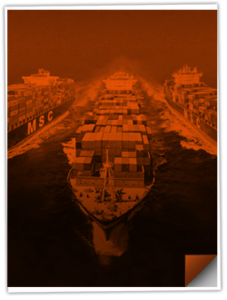What is Cargo Insurance?
Cargo insurance, also known as marine or freight insurance, is a type of coverage that protects your goods while they’re being transported. Whether by sea, air, or land, this ensures that if something goes wrong, you’re not left high and dry. It’s all about covering the risks that come with moving goods across the globe, and trust us, there are quite a few!
Why Do You Need Cargo Insurance?
Let’s face it, international shipping can be risky business. From storms at sea to geopolitical tensions, there are countless factors that can impact the safety of your cargo. Here’s why cargo insurance is your best friend:
- Protection Against Loss or Damage: Accidents happen, and cargo can get damaged or lost. Insurance helps you recover financially if your goods don’t make it to their destination in one piece.
- Peace of Mind: Knowing that your shipment is covered gives you peace of mind, allowing you to focus on other important aspects of your business.
- Compliance with Trade Regulations: In some cases, having cargo insurance is a legal requirement. It ensures you’re compliant with international trade laws, which is crucial for smooth operations.
Types of Cargo Insurance
Now that we know why cargo insurance is important, let’s talk about the different types you might encounter:
1. Open Cover
This type of policy is perfect for businesses that ship goods frequently. It provides continuous coverage for all shipments during a specified period, usually a year. It’s like a subscription service for your cargo insurance needs!
2. Specific Voyage Policy
If you’re shipping goods occasionally, a specific voyage policy might be your best bet. It covers a single shipment from start to finish, ensuring that particular cargo is protected.
3. All-Risk Policy
Want to cover all your bases? The all-risk policy is the most comprehensive option. It covers a wide range of risks, from theft and damage to natural disasters. It’s the ultimate safety net for your cargo.
4. Named Perils Policy
If you’re looking for more targeted coverage, a named perils policy might be the way to go. It covers specific risks that you and the insurer agree upon, providing protection where you need it most.
How Does Cargo Insurance Work?
Alright, so how does cargo insurance actually work? Here’s a simple breakdown:
- Get a Quote: Start by getting a quote from an insurance provider. They’ll assess the value of your goods, the mode of transport, and the risks involved to give you a premium.
- Choose Your Coverage: Decide on the type of coverage that best suits your needs. Whether it’s an all-risk policy or a specific voyage policy, make sure it aligns with your shipping habits.
- Pay the Premium: Once you’ve chosen your coverage, you’ll pay the premium. This is the cost of the insurance, and it varies based on factors like the value of your cargo and the risks involved.
- File a Claim if Needed: If something goes wrong during transit, you’ll need to file a claim with your insurance provider. They’ll assess the situation and compensate you for the loss or damage.
Geopolitical Factors and Cargo Insurance
Now, let’s talk about the elephant in the room—geopolitical factors. These can have a huge impact on global trade and, by extension, your cargo. Here’s how:
Political Instability
Political instability in a region can disrupt shipping routes and affect the safety of your cargo. For example, conflicts or changes in government policies can lead to delays or even loss of goods. Having cargo insurance ensures you’re covered in such scenarios.
Trade Tariffs and Regulations
Changes in trade tariffs and regulations can also impact your shipments. With insurance, you’re protected against potential financial losses due to sudden changes in the trade landscape.
Natural Disasters
Mother Nature can be unpredictable. From hurricanes to earthquakes, natural disasters can wreak havoc on shipping routes. Cargo insurance provides protection against these unforeseen events, ensuring your goods are safe even when the weather isn’t.
Forecasting Future Trends in Cargo Insurance
As the world of global trade evolves, so does cargo insurance. Here are some trends to keep an eye on:
Digitalization of Insurance Processes
The insurance industry is going digital, and cargo insurance is no exception. Expect to see more online platforms that offer quick quotes, easy policy management, and even blockchain-based solutions for transparency and security.
Increased Focus on Cybersecurity
With the rise of digital platforms, cybersecurity is becoming a top priority. Insurance providers are now offering coverage for cyber risks, ensuring your digital assets are as protected as your physical cargo.
Sustainable Shipping Practices
As environmental concerns grow, more companies are adopting sustainable shipping practices. Insurance providers are likely to offer incentives for businesses that prioritize eco-friendly transport methods, aligning coverage with green initiatives.



